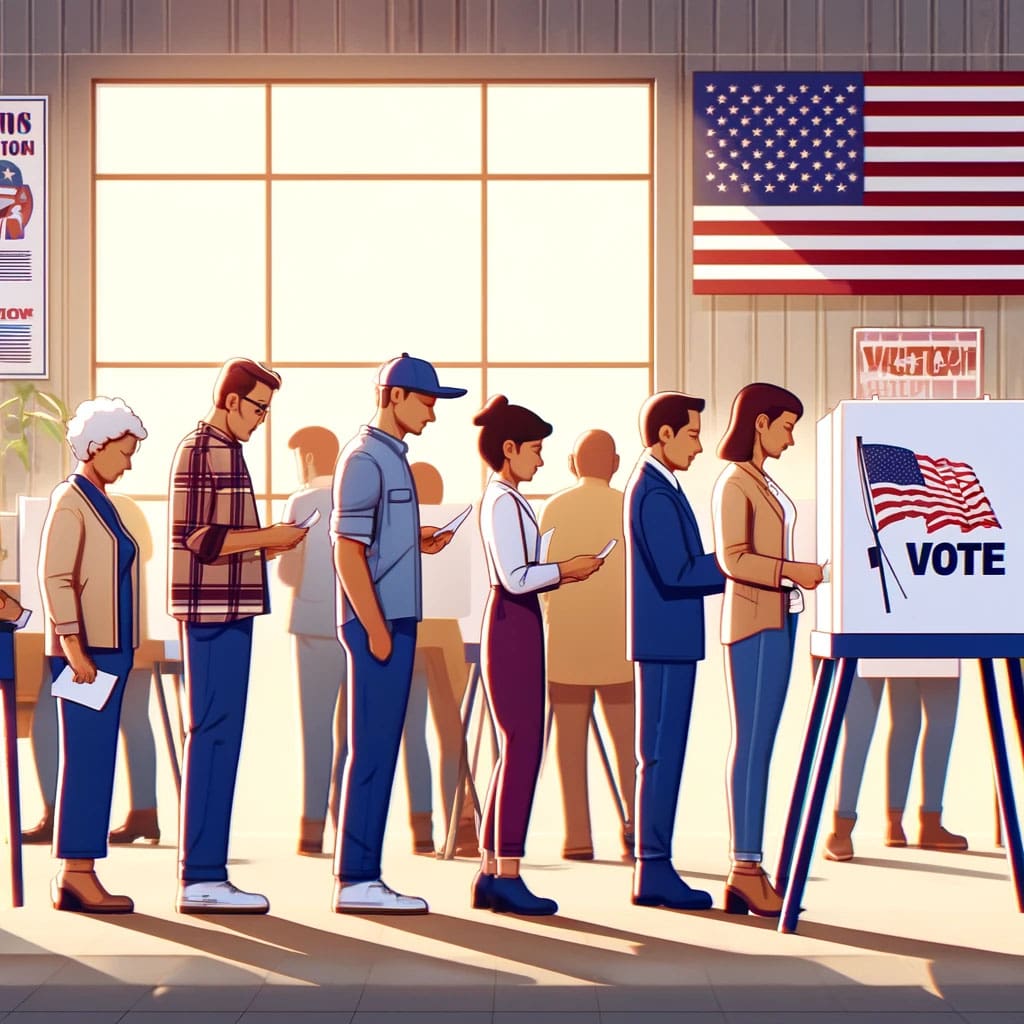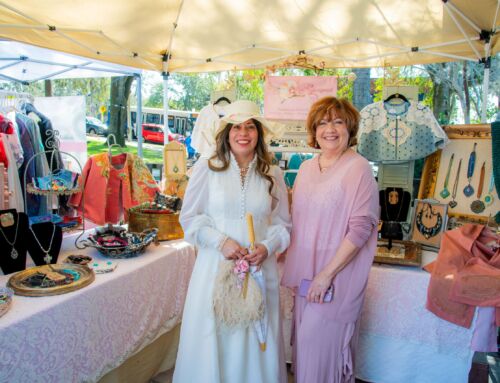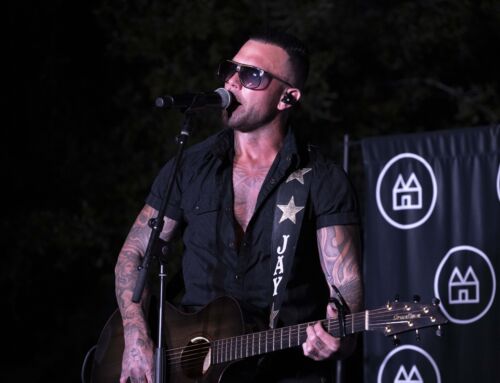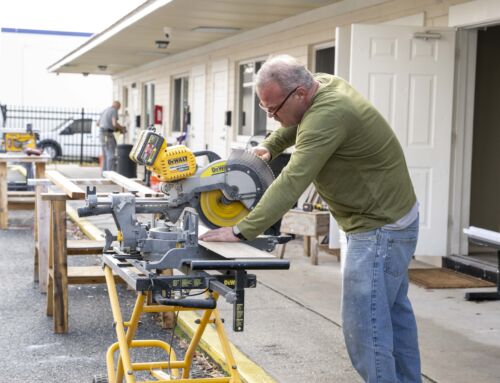October 22, 2024
Breaking Down Florida’s 2024 Ballot Amendments: What You Need to Know

By Cindy Peterson
Breaking Down Florida’s 2024 Ballot Amendments: What You Need to Know

As Florida voters head to the polls, the focus may be on the presidential race, but the ballot also includes important decisions about the state’s future. In addition to local elections, Floridians will be asked to vote on six proposed amendments to the state constitution. These amendments cover a wide range of topics, from education and taxes to marijuana legalization and abortion rights. Understanding what each amendment really means, beyond the legal jargon, is crucial for making informed decisions. Here’s a breakdown of the amendments in clear, easy-to-understand terms.
Amendment 1: Partisan School Board Elections
“Proposing amendments to the State Constitution to require members of a district school board to be elected in a partisan election rather than a nonpartisan election and to specify that the amendment only applies to elections held on or after the November 2026 general election. However, partisan primary elections may occur before the 2026 general election for purposes of nominating political party candidates to that office for placement on the 2026 general election ballot.”
Right now, school board members are elected in nonpartisan elections, which means their political party isn’t shown on the ballot. This amendment would change that, making school board elections partisan, so candidates would run as Democrats, Republicans, or another political party. This wouldn’t start until the 2026 election, but political parties could begin nominating candidates before then.
- What it Does: This amendment would change how school board members are elected in Florida. Instead of being nonpartisan (without showing a political party), school board candidates would run with a party label, such as Democrat or Republican, starting in 2026.
- What a YES Vote Means: School board candidates would run with their party affiliation on the ballot.
- What a NO Vote Means: School board elections would stay nonpartisan, as they are now.
Amendment 2: Right to Hunt and Fish
“Proposing an amendment to the State Constitution to preserve forever fishing and hunting, including by the use of traditional methods, as a public right and preferred means of responsibly managing and controlling fish and wildlife. Specifies that the amendment does not limit the authority granted to the Fish and Wildlife Conservation Commission under Section 9 of Article IV of the State Constitution.”
This amendment aims to protect fishing and hunting as a public right in Florida. It ensures that these activities remain legal and are considered important for managing wildlife. It won’t interfere with the Florida Fish and Wildlife Conservation Commission’s power to regulate fishing and hunting rules.
- What it Does: This amendment would make the right to fish and hunt a permanent part of Florida’s constitution. It would protect these activities and make them a key way to manage wildlife.
- What a YES Vote Means: The right to hunt and fish would be added to the state constitution, making it harder for the government to limit these activities.
- What a NO Vote Means: The state could more easily create laws to regulate or limit hunting and fishing.
Amendment 3: Legalizing Recreational Marijuana
“Allows adults 21 years or older to possess, purchase, or use marijuana products and marijuana accessories for non-medical personal consumption by smoking, ingestion, or otherwise; allows Medical Marijuana Treatment Centers, and other state-licensed entities, to acquire, cultivate, process, manufacture, sell, and distribute such products and accessories.”
This amendment would allow adults 21 years and older to legally use marijuana for personal, nonmedical reasons. It would also permit licensed businesses to grow and sell marijuana products. However, it’s important to note that marijuana would still be illegal under federal law, even if this passes in Florida.
- What it Does: This amendment would make it legal for adults 21 and older to use marijuana for personal reasons, not just for medical purposes. It would allow marijuana to be sold by licensed businesses.
- What a YES Vote Means: Adults could legally buy and use marijuana for recreational purposes.
- What a NO Vote Means: Recreational marijuana would remain illegal in Florida.
Amendment 4: Protecting Abortion Rights
“No law shall prohibit, penalize, delay, or restrict abortion before viability or when necessary to protect the patient’s health, as determined by the patient’s healthcare provider. This amendment does not change the Legislature’s constitutional authority to require notification to a parent or guardian before a minor has an abortion.”
This amendment seeks to add abortion protections to Florida’s constitution. It would prevent the government from banning or restricting abortions before a fetus is viable (meaning it could survive outside the womb) or if an abortion is needed to protect the patient’s health. This amendment does not change current laws requiring parents to be notified if a minor is seeking an abortion.
- What it Does: This amendment would add abortion protections to Florida’s constitution. It would allow abortions before a fetus can survive outside the womb (around 24 weeks) or if needed to protect the mother’s health.
- What a YES Vote Means: Abortion would be legal in Florida until the point of fetal viability or when necessary for the mother’s health.
- What a NO Vote Means: Florida’s current abortion law, which bans abortion after six weeks, would stay in place.
Amendment 5: Homestead Exemption Inflation Adjustment
“Proposing an amendment to the State Constitution to require an annual adjustment for inflation to the value of current or future homestead exemptions that apply solely to levies other than school district levies and for which every person who has legal or equitable title to real estate and maintains thereon the permanent residence of the owner, or another person legally or naturally dependent upon the owner is eligible. This amendment takes effect January 1, 2025.”
This amendment would adjust the value of certain homestead exemptions each year to keep up with inflation. Homestead exemptions help lower the amount of property tax people pay on their homes. This adjustment wouldn’t apply to school district taxes but would affect other property taxes.
- What it Does: This amendment would adjust homestead tax exemptions (which lower property taxes on homes) each year to keep up with inflation.
- What a YES Vote Means: The value of the homestead exemption would increase with inflation, helping homeowners save more on property taxes.
- What a NO Vote Means: The homestead exemption would stay the same, even if inflation causes property values to rise.
Amendment 6: Repeal of Public Campaign Financing
“Proposing the repeal of the provision in the State Constitution which requires public financing for campaigns of candidates for elective statewide office who agree to campaign spending limits.”
This amendment would get rid of a rule that gives public funds (taxpayer money) to statewide political candidates who agree to limit their campaign spending. If repealed, candidates would no longer receive public money for their campaigns, and the spending limits would no longer apply.
- What it Does: This amendment would get rid of a rule that gives public funds (taxpayer money) to statewide political candidates who agree to limit their campaign spending.
- What a YES Vote Means: Candidates for statewide offices would no longer receive public funds for their campaigns.
- What a NO Vote Means: The state would continue to provide public financing for candidates who agree to campaign spending limits.
Here is a good source for more information on each amendment: https://www.hendryelections.org
Originally from the small town of Berryville, Arkansas, Cindy has become a multimedia specialist in journalism, photography, videography, and video editing. She has a B.S. in Communications from the University of Central Arkansas and produces Style Magazine's Sports Hub Podcast and the Healthy Living Podcast. She also produces for Beacon College’s Telly Award-winning PBS show, “A World of Difference.” When she isn’t working, Cindy loves traveling the National Parks with her husband , Ryan, and son, David, photographing wildlife.







































